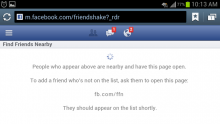Mobile Privacy Standards to Be Discussed at Government Meetings
The National Telecommunications and Information Administration (NTIA) is set to host the first of several meetings seeking input for its effort to develop new codes of conduct for handling private consumer date on the Internet and mobile networks.
The meeting, scheduled for July 12 at the U.S. Department of Commerce building in Washington D.C., is open to all and will focus primarily on mobile application privacy.












































































